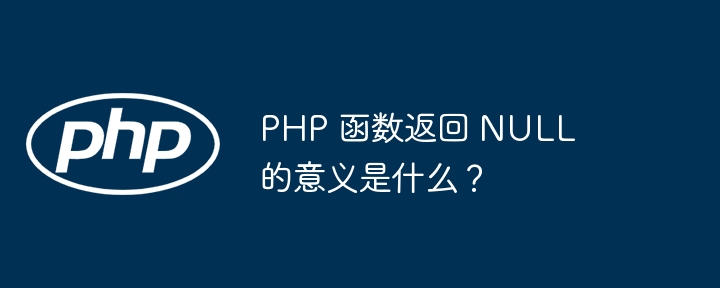Home >Backend Development >PHP Tutorial >What does it mean when a PHP function returns NULL?
What does it mean when a PHP function returns NULL?
- 王林Original
- 2024-04-21 13:03:01598browse
PHP function returns NULL to indicate that the function has no return value, encountered an error, or returned NULL intentionally. For example, the findUser function returns a user object or NULL based on the database query results, or NULL if the user does not exist.

The meaning of PHP function returning NULL
In PHP, the function returning NULL indicates the following situations:
-
Functions have no explicit return value:
- For example, the
echoandprintfunctions only print Output, returns no value.
- For example, the
-
The function encountered an error or exception:
- If the function cannot complete its task, it may throw an exception or Return NULL.
-
Functions intentionally return NULL:
- Developers may choose to return NULL to indicate that the value does not exist or that the operation failed.
Practical case
The following is a practical case to illustrate the meaning of the function returning NULL:
function findUser($id) {
$result = $database->query("SELECT * FROM users WHERE id = $id");
if ($result->num_rows > 0) {
return $result->fetch_object();
} else {
return NULL; // 用户不存在,返回 NULL
}
}
$user = findUser(1);
if ($user) {
echo $user->name; // 用户存在
} else {
echo "用户不存在"; // 返回 NULL 表示用户不存在
}In In this example, the findUser function returns a user object or NULL based on the database query results. If the user exists, a user object is returned; otherwise, NULL is returned to indicate that the user does not exist.
The above is the detailed content of What does it mean when a PHP function returns NULL?. For more information, please follow other related articles on the PHP Chinese website!

